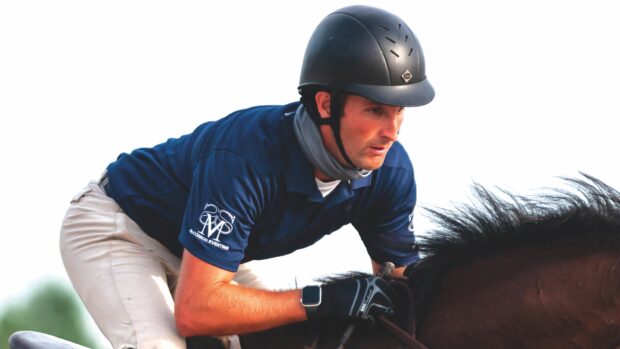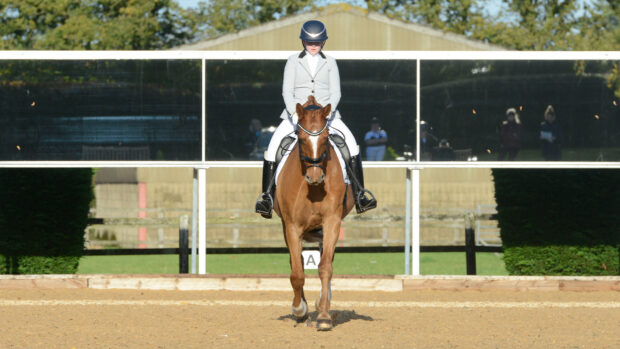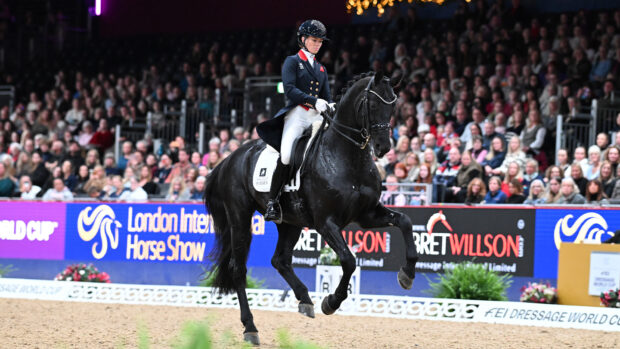Four-time Olympian Richard Davison on Team GB’s success and a week spent under the spotlight
Like everyone else, I have been captivated and inspired by Team GB’s wonderful riding and all of the equestrian sport at the Paris Olympics. Every one of our nine riders rode with incredible skill and composure, and a shout-out to our reserve combinations for remaining on standby, which is never an easy task. Overall, the sport at the top end was thrilling to watch and a very high standard.
There is no doubt that having only three in a team makes for an exciting final. When the three-member team was first proposed in 2011, I was the equestrian athlete representative delegated to travel to FEI headquarters and argue against it. However, after the finals we saw in Paris, I have no hesitation in conceding that the FEI got it right. Each of the three team finals kept us on the edge of our seats until the very end.
Integrity matters
Much of my time during the week prior to the start of the Games was spent handling issues related to the now-infamous video. Many of you will have spotted Alice Plunkett, racing broadcaster and wife of William Fox-Pitt, on your TV screens in the immediate aftermath.
She, along with other interviewees, worked tirelessly to uphold the integrity of equestrian sport – especially dressage – amid what can only be described as a media frenzy.
Due to my involvement in some of the initial disciplinary procedural formalities, I was only able to offer behind-the-scenes support to Alice, who had the unenviable task of being on the front line. The challenge we are all now facing is how to counter the public’s concern that the recent video portrays how horses are trained behind closed doors.
So, how do we correct the growing (and wrong) perception that, notwithstanding equestrianism’s public face, the video footage reveals secret training techniques commonly used by our Olympic athletes?
A large portion of the undecided middle ground, who had previously sat on the fence as regards the ethics of equestrian sport, may now be shifting in the wrong direction.
Disciplinary proceedings take time
I’ve overheard the frustrations from those who cannot understand why the FEI often seems to take so long to decide on prima facie cases of horse abuse.
When a member of a governing body is accused of a rule violation – whether they’re an athlete, groom, official or family member over whom jurisdiction is held – they first receive a formal notification citing the alleged breaches before eventually being charged. That triggers the commencement of the disciplinary procedure, during which an appropriate period is provided for the collection of evidence.
Besides evidence provided by those witnessing the incident, there is of course the evidence from the person alleged to be in breach. The disciplinary panel will not only have to establish if a rule violation occurred, but they must take into account any mitigating circumstances that caused it to occur before sanctions can be awarded.
Sanctions can be a serious matter. FEI rule 164 sets out the five categories or levels of sanction, ranging from a three-month suspension to a lifetime ban, plus monetary fines.
Each national federation has similar disciplinary rules and in some cases, the accused may face sanctions from more than one governing body. I’ve known instances where a national federation imposed a more severe sanction than the international governing body.
The point is the repercussions for the accused person can have a serious impact on their ability to pursue their trade and on their life in general.
In the interest of justice, appropriate time must be afforded to the person accused to file their defence, especially for obtaining any extra evidence they may need to support their mitigation.
● How do we best address the public’s growing concerns? Write to us at hhletters@futurenet.com, including your name, nearest town and country, for the chance for your letter to appear in a forthcoming issue of the magazine
- To stay up to date with all the breaking news throughout the Paralympic Games, Burghley, HOYS and more, subscribe to the Horse & Hound website
You might also be interested in:

Anna Ross: ‘Let’s move forward with pride in our past and the humility to improve sport’

What Carl Hester really said about his retirement after winning bronze at Paris Olympics

Bravo Britain! Lottie Fry secures brilliant Olympic dressage team bronze to make history for Team GB

Subscribe to Horse & Hound magazine today – and enjoy unlimited website access all year round



